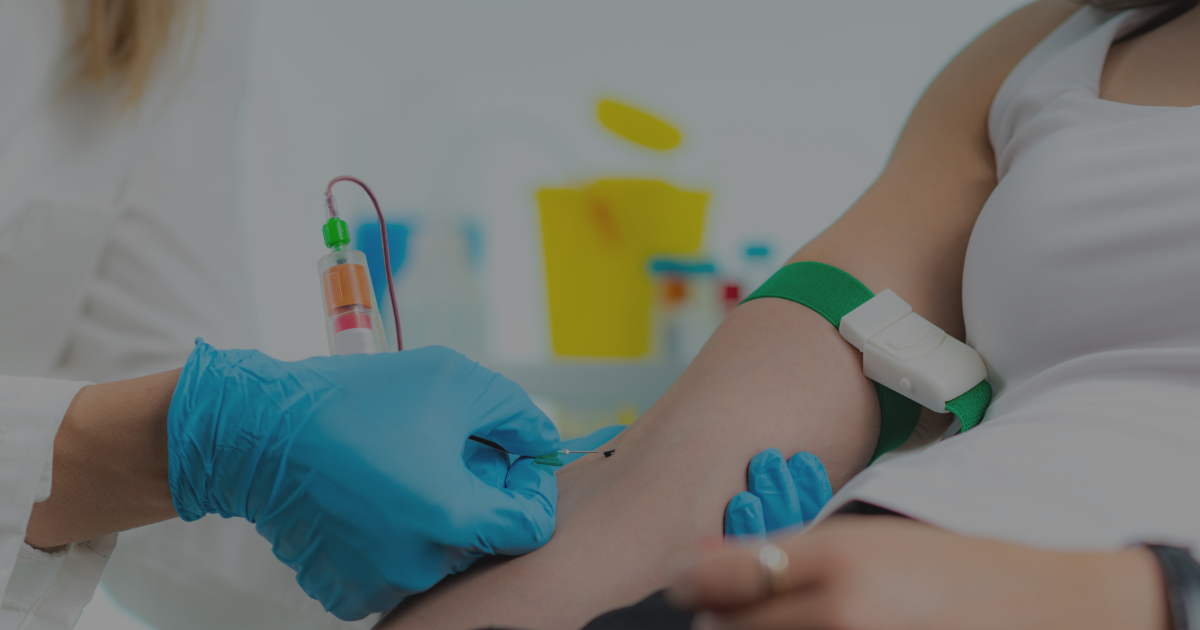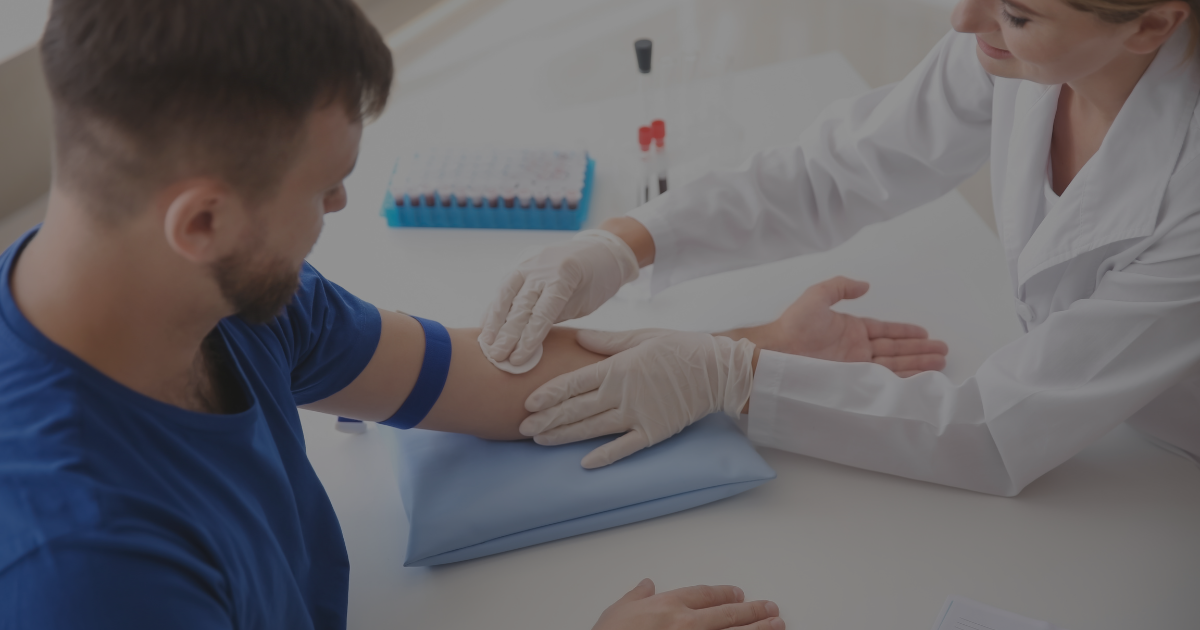The healthcare field thrives on a dedicated team of professionals, each playing a vital role in patient care. Phlebotomists are essential members of this team, responsible for the safe and efficient collection of blood samples used for various diagnostic tests. This informative guide explores the crucial phlebotomy skills needed to excel in this rewarding career path. We’ll delve into the specific technical skills, essential soft skills, and strategies for developing and showcasing your expertise. By the end, you’ll be well-equipped to craft a compelling resume, cover letter, and interview performance that highlights your phlebotomy skills and sets you apart from the competition.
| Key Takeaways |
| Phlebotomy is a vital role in the healthcare field, playing a crucial part in patient diagnosis and treatment. |
| Success in phlebotomy hinges on mastering both technical skills like venipuncture and blood collection, and soft skills like communication, empathy, and attention to detail. |
| Building your phlebotomy skillset involves a combination of formal education, practical experience, mentorship, and ongoing learning. |
| Craft a compelling resume and cover letter that highlight your phlebotomy skills and achievements relevant to the specific role you’re applying for. |
| Acing the phlebotomy interview requires preparation, utilizing the STAR method, showcasing your skills, and demonstrating your passion for patient care. |
Understanding Phlebotomy and its Significance
Phlebotomy is the practice of drawing blood samples from patients for various medical purposes. These samples are then analyzed in laboratories to identify potential health issues, monitor existing conditions, and inform treatment plans. Phlebotomists ensure this process is performed accurately and comfortably, minimizing patient discomfort and ensuring the integrity of the collected blood.
Core Phlebotomy Skills for Success

Phlebotomy Now School – Phlebotomy Skills
To excel as a phlebotomist, a strong foundation in both technical skills and soft skills is essential. Here’s a breakdown of the key areas you’ll need to master:
Technical Skills
- Venipuncture: This is the core skill of phlebotomy, involving the precise location and puncture of a vein to collect blood. Mastering proper needle insertion techniques is crucial for minimizing patient discomfort and ensuring successful blood collection.
- Blood Collection: Understanding different blood collection methods, like vacuum systems and capillary puncture, is necessary to adapt to various patient needs and test requirements.
- Specimen Handling and Processing: Proper labeling, storage, and transport of blood samples are vital to maintain their integrity for accurate analysis. This includes adhering to specific protocols to prevent contamination.
- Equipment Operation and Maintenance: Familiarity with phlebotomy equipment, including needles, syringes, blood tubes, and tourniquets, ensures their proper use and maintenance for optimal performance.
Soft Skills
- Communication: Effective communication builds trust and rapport with patients. This includes explaining procedures clearly, addressing anxieties, and actively listening to their concerns.
- Empathy and Compassion: Understanding patient nervousness and discomfort is crucial. Phlebotomists who demonstrate empathy can ease patient anxiety and contribute to a more positive experience.
- Attention to Detail: Meticulous attention to detail is paramount in phlebotomy. This ensures accurate labeling of specimens, adherence to safety protocols, and minimizes errors during the blood collection process.
- Organization and Time Management: The ability to prioritize tasks, manage time efficiently, and maintain a clean and organized workspace is essential for smooth workflow, especially in busy healthcare settings.
- Teamwork: Phlebotomists often collaborate with nurses, doctors, and laboratory technicians. Strong teamwork skills ensure clear communication and efficient coordination of patient care.
Building Your Phlebotomy Skillset
Here are several avenues to develop and refine your phlebotomy skills:
- Formal Education: Many phlebotomy programs offer certificate courses that provide comprehensive training in theory and practical skills. These programs often include clinical rotations, allowing you to gain hands-on experience under the supervision of experienced professionals.
- Work Experience: As you gain experience working in hospitals, clinics, or blood donation centers, you’ll encounter diverse patient situations and refine your skills through practical application.
- Mentorship: Seeking guidance from seasoned phlebotomists can be invaluable. They can offer practical tips, share best practices, and provide valuable insights into the field.
- Continuing Education: Staying updated on the latest advancements in phlebotomy techniques and regulations is crucial for maintaining your proficiency. Numerous continuing education courses and workshops are available to help you stay ahead of the curve.
Optimizing Your Resume and Cover Letter for Phlebotomy Roles
When applying for phlebotomy positions, your resume and cover letter serve as your first impression to potential employers. Here’s how to effectively showcase your phlebotomy skills within these documents:
Resume:
- Skills Section: List your key phlebotomy skills like venipuncture, blood collection techniques, specimen handling, and equipment operation.
- Experience Section: Quantify your achievements and highlight specific instances where you utilized your phlebotomy skills to deliver exceptional patient care.
- Summary Section: Provide a concise overview of your qualifications and experience, emphasizing your phlebotomy skills and how you can contribute to the healthcare organization.
Cover Letter:
- Connect your skills and experience to the specific requirements mentioned in the job description.
- Provide specific examples of how you’ve utilized your phlebotomy skills to improve patient care, minimize discomfort, or ensure accurate sample collection.
- Briefly mention your desire to learn and grow within the organization.
Acing the Phlebotomy Interview
Job interviews present a golden opportunity to demonstrate your phlebotomy skills and make a lasting impression on potential employers. Here are some tips to help you shine:
- Preparation is Key: Research the healthcare facility and the specific phlebotomy role you’re applying for. Review common interview questions and prepare clear and concise answers that showcase your skills and experience.
- STAR Method: Use the STAR method (Situation, Task, Action, Result) to structure your interview responses. By providing specific examples of challenges you’ve faced and how you utilized your skills to overcome them, you’ll demonstrate your problem-solving abilities and phlebotomy expertise.
- Highlight Your Skills: Throughout the interview, weave in your key phlebotomy skills organically. Discuss your proficiency in venipuncture techniques, blood collection methods, and specimen handling procedures.
- Behavioral Questions: Be prepared to answer behavioral questions that assess your approach to teamwork, handling difficult patients, and dealing with stressful situations. Emphasize your communication skills, empathy, and ability to remain calm under pressure.
- Ask Questions: Prepare insightful questions for the interviewer about the phlebotomy role, the department, and the healthcare facility. This demonstrates your genuine interest in the position and your commitment to professional growth.
Building Your Expertise: Beyond the Basics
As you progress in your phlebotomy career, consider exploring opportunities to further develop your skills and expertise. Here are some potential avenues:
- Specialization: Certain areas within phlebotomy offer opportunities for specialization. These might include pediatric phlebotomy, mobile phlebotomy, or apheresis (a specialized blood collection technique).
- Leadership Roles: With experience, you may consider taking on supervisory roles, leading phlebotomy teams, and mentoring new hires.
- Phlebotomy Instructor: Sharing your knowledge with future phlebotomists can be a rewarding career path. Certification programs may require additional qualifications to become an instructor.
FAQs
What are the educational requirements to become a phlebotomist?
While formal education is not always mandatory, most employers prefer phlebotomists with a phlebotomy technician certificate. These programs can typically be completed in a few months.
What are the career prospects for phlebotomists?
The job outlook for phlebotomists is projected to grow faster than average according to the US Bureau of Labor Statistics [Bureau of Labor Statistics, U.S. Department of Labor. Occupational Outlook Handbook, Edition: 2022-23 (.gov)]. This growth is attributed to the increasing demand for healthcare services and the aging population.
What are some of the challenges of being a phlebotomist?
Some challenges phlebotomists may face include working with uncooperative patients, dealing with stressful situations, and maintaining emotional resilience.
What are some of the most rewarding aspects of being a phlebotomist?
Phlebotomists play a vital role in patient care and can experience the satisfaction of knowing their work contributes to diagnosis and treatment. Building rapport with patients and witnessing their positive outcomes can be very rewarding.
Conclusion
Phlebotomy is a rewarding career path that plays a vital role in the healthcare field. By honing your technical and soft skills, actively seeking learning opportunities, and showcasing your expertise during your job search, you can position yourself for success in this dynamic profession. Remember, a commitment to continuous learning, patient care, and professional growth will pave the way for a fulfilling and successful career as a phlebotomist.
Ready to Launch Your Phlebotomy Career?
Phlebotomy Now School can equip you with the knowledge and skills you need to become a certified phlebotomy technician and embark on a rewarding healthcare career. Our comprehensive programs combine classroom instruction with hands-on experience, preparing you to excel in this critical role.
Take the first step toward your future in phlebotomy. Contact Phlebotomy Now School today to discuss our programs and how we can help you achieve your goals!







